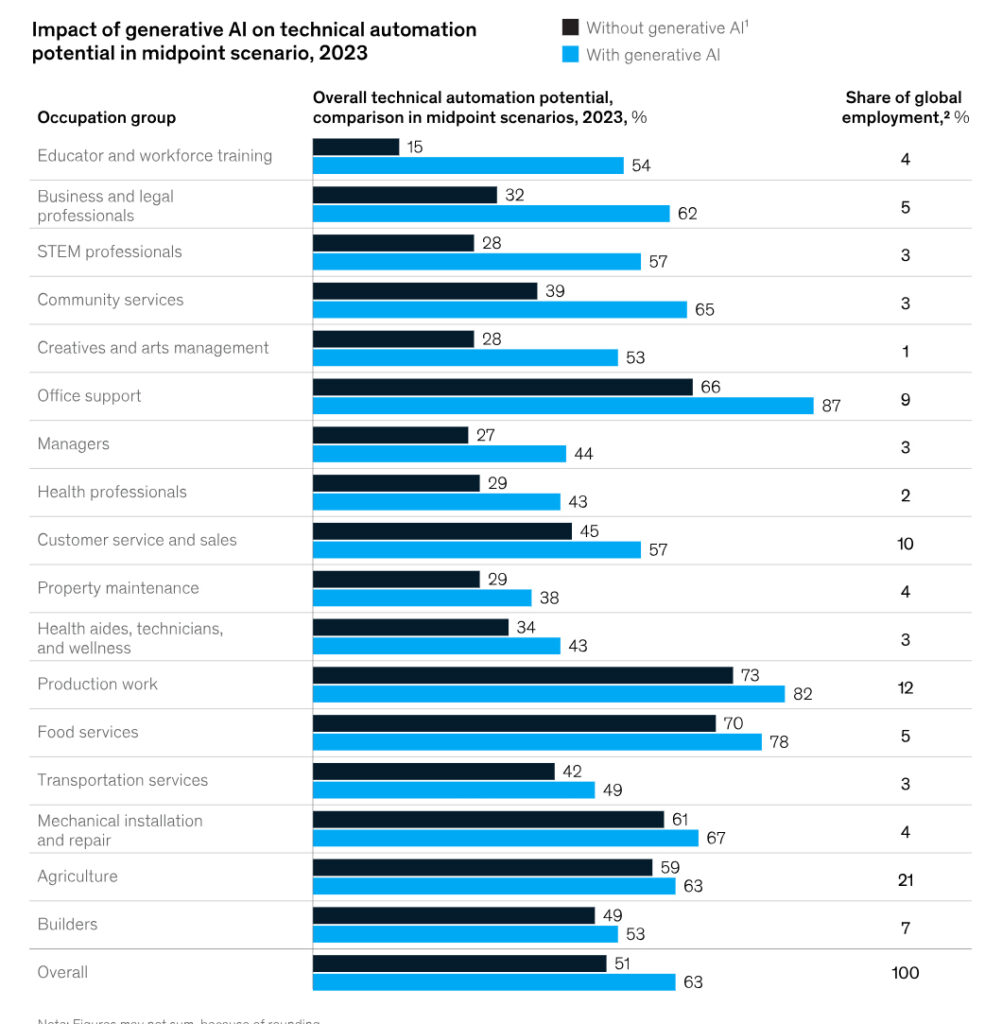In 2023, the desire to benefit from tech-driven innovation got a boost in the arm, thanks to the perceived potential of emerging AI technologies. Arguably one of the most talked about tech in 2023 was artificial intelligence, specifically Generative AI.
Forrester predicts that enterprise AI initiatives will boost productivity and creative problem-solving by 50% in 2024, and the benefits promised cut across all functions in the organisation, including operations, marketing and sales, customer service, finance and of course IT.
But exactly how these functions will benefit from Gen AI will likely depend on how well the technology is understood, what types of use cases are adopted, and how well employees embrace the enterprise applications that will eventually be deployed.
What is clear is that the Gen AI honeymoon is fast nearing its end as C-suite leaders get a better handle on the risks that come with unbridled use of the technology.
In this PodChats for FutureCIO, Leslie Joseph, a principal analyst at Forrester, finds answers to some of the most perplexing questions that GenAI brings to the table.
Joseph defines generative AI (GenAI) as AI that can generate or create various ideas or outputs, such as images, text, language, music, audio, or video. He believes that most people think of GenAI as AI that is based on foundation models or deep learning models that are trained on massive amounts of diverse, heterogeneous data and then fine-tuned for specific use cases.
He notes that there is GenAI that is not based on foundational models, and conversely, there are foundation models that are not necessarily generative.
Asked what business leaders consider generative AI, Joseph acknowledges a high awareness of GenAI and asks how to use these capabilities to improve employee productivity – can GenAI help do mundane things faster?

He opines that there is a small subset of people who are looking at GenAI and asking what it means for the business model. “How can this technology help to transform operations or how can it support crucial business decision-making? People are not clear about where the valuable use cases for GenAI are,” posited Joseph.
In the McKinsey report, Economic potential of generative AI: The next productivity frontier, it is posited that GenAI will have the biggest impact on knowledge workers – in activities involving decision-making and collaboration (see Figure 1).
Figure 1: Advances in technical capabilities could have the most impact on activities performed by educators, professionals, and creatives.

1 Previous assessment of work automation before the rise of generative AI
2 Includes data from 47 countries, representing about 80% of employment across the world.
Source: McKinsey Global Institute analysis
Click on the PodChat player to hear in detail Joseph’s perspective on how GenAI is evolving and what organisations need to do to harness the technology.
- What do most organisations in Asia, and its leaders, understand when it comes to generative AI?
- How would you compare how leadership and the rest of the company feel about GenAI?
- Some contend that GenAI has the potential to democratise data analytics. Can you elaborate on this?
- GenAI is still relevant young. How do you see hardware, software and solutions evolving as AI and ML techniques mature?
- Is the infrastructure of today ready to support the evolving AI technologies?
- What measures/safeguards are needed to ensure the responsible use of GenAI? (Level 100?)
- Do you see GenAI leading to IT team burnout?
- What is the future of GenAI? How do you see it driving the future?




